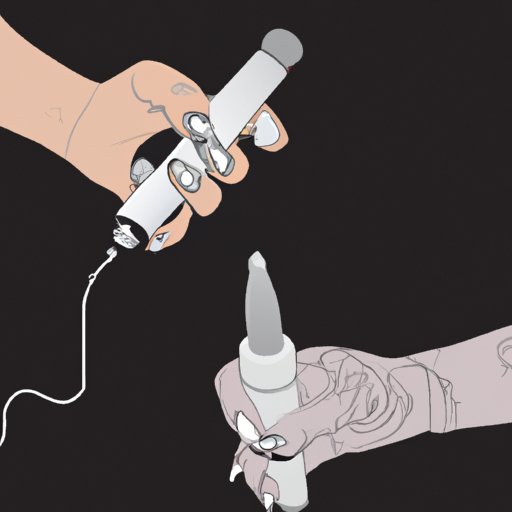
Introduction
Getting a new tattoo is exciting, but taking care of it properly is crucial for ensuring the best possible outcome. A well-cared-for tattoo will look bright, vibrant, and beautiful for years to come. This article aims to provide a comprehensive guide for anyone who is new to tattoo care or wants to refresh their knowledge on the subject.
The Immediate Aftercare
Immediately after getting a tattoo, it is essential to follow the instructions given by your tattoo artist. In most cases, you will need to leave the bandage on for a few hours. During this time, it’s important to avoid exposing the tattoo to water, as this can lead to infection or damage the tattoo. After you remove the bandage, you can gently wash the tattoo with mild soap and lukewarm water. Use your hand, not a washcloth or anything abrasive. Pat the tattoo dry with a clean towel and let it air dry for a few minutes. Once it’s dry, apply a thin layer of ointment recommended by your tattoo artist. Repeat this process several times a day for the first few days after getting the tattoo.
If you experience any pain or discomfort after getting the tattoo, you can take over-the-counter pain relievers such as ibuprofen or acetaminophen as directed by your doctor. Avoid taking aspirin, as it can thin the blood and lead to bleeding. Some swelling, redness, and bruising are normal after getting a tattoo, but if you experience severe pain, bleeding, or signs of infection, such as fever, see a doctor immediately.
The First Few Weeks
The first few weeks after getting a tattoo are crucial for its healing process. During this time, it’s essential to keep the tattoo clean and moisturized to avoid scarring and other complications. Your tattoo artist will likely recommend a specific type of moisturizer to use during this time. It’s important to apply the moisturizer regularly, several times a day, to keep your skin moist and prevent it from drying out. Avoid using any lotions or creams that contain fragrances, dyes, or other irritating ingredients that can damage your tattoo.
It’s also essential to avoid tight clothing that can rub against your tattoo and cause irritation and damage. Wear loose, comfortable clothing that won’t touch your tattoo. If you do notice any scabs forming, resist the urge to pick at them, as this can damage your tattoo and cause scarring. Let the scabs fall off naturally.
Long-Term Care
After the initial healing period, it’s still essential to take good care of your tattoo to keep it looking bright and vibrant over time. One of the easiest things you can do is to protect your tattoo from the sun by applying sunscreen regularly. Choose a sunscreen with a high SPF and apply it to your tattoo before exposing it to the sun. Reapply sunblock every few hours or more often if you’re swimming or sweating.
In addition to avoiding the sun, other factors can affect the longevity of your tattoo. For example, smoking can cause your tattoo to fade more quickly over time. Some medications can also affect your tattoo, so it’s essential to talk to your doctor about any medications you are taking and how they might affect your tattoo.
Mistakes to Avoid
Finally, there are several common mistakes that people make when caring for their tattoos. One of the most common is over-moisturizing, using too much lotion or cream, which can lead to clogging the pores and causing further irritation. Another mistake is using products with irritating ingredients, such as fragrances or alcohol, which can damage the tattoo and cause infection. Finally, avoid scrubbing your tattoo too vigorously or using anything abrasive, such as loofahs or brushes, as this can cause damage and scaring.
Conclusion
Taking care of a new tattoo is essential for ensuring the best possible outcome. From the initial aftercare to long-term maintenance, there are many steps you can take to ensure your tattoo looks beautiful and vibrant for years to come. By following the tips in this article and avoiding common mistakes, you can help protect your tattoo and keep it looking its best. Remember, always talk to your tattoo artist and doctor if you have any questions or concerns about caring for your tattoo.




